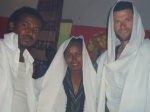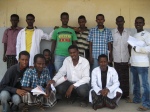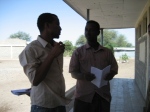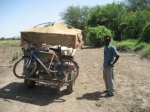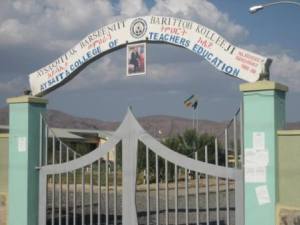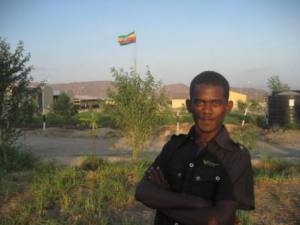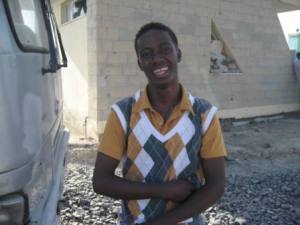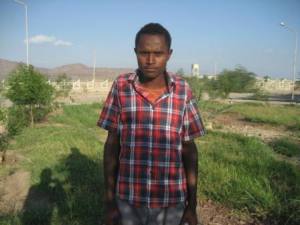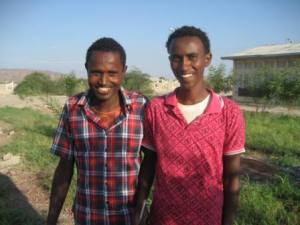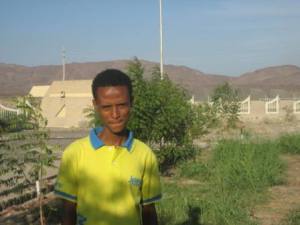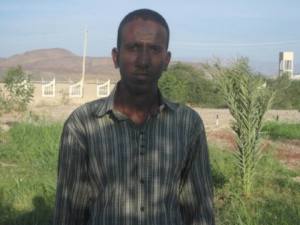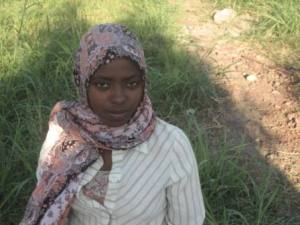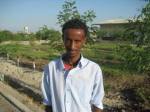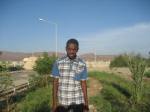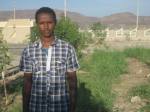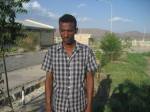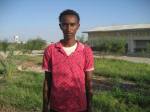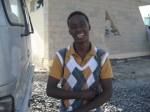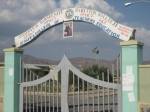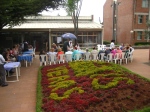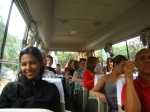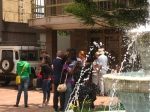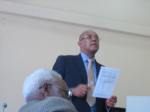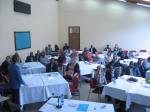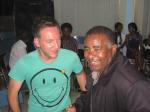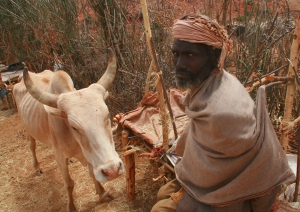Summer 2012 has been a busy one in Addis. My time has been split doing work for VSO Ethiopia and for the Cafod/Sciaf/Trocaire Joint Ethiopia Office. Here is a summary of what I have been up to over the last few months:
Task 1 – SCIAF (Scottish arm of Caritas) application for independent registration with the Government of Ethiopia’s Charities and Services Association submitted
International non-governmental organisations wishing to operate in Ethiopia must register and be licensed by the Government of Ethiopia’s Charities and Services Association. Cafod, Sciaf, and Trocaire operate a joint office in Ethiopia and in the past have been able to register with the CSA jointly as well. This year the CSA demanded that each register separately and distinguish which projects each organisation is responsible for funding. In order to complete the narrative of SCIAF’s application to the CSA, I interviewed each of the Senior Programme managers in the CST joint office to learn about which projects received funding from SCIAF. The four project areas supported by the CST joint office are: Humanitarian, Sustainable Livelihoods, HIV/AIDS, and Civil Society. Although SCIAF is the smallest partner in the joint Ethiopia office, they support elements of projects in each of the programme areas. SCIAF’s application for registration with the CSA was submitted at the end of August 2012.
Task 2 – €500 000 matching funds application for Oromia Self Reliance Association to expand water infrastructure in the Borana region of southern Ethiopia sent to CAFOD
The lack of potable water supply in Oromia National Regional State, South West Shewa Zone, Wolisso and Goro districts is the source of ongoing problems in the area. Water supply and sanitation coverage in the districts is low and the majority of the people rely on surface water such as small streams and unprotected traditional hand dug wells, which are not potable, to get water for human and livestock consumption. Moreover, sanitation and hygiene education coverage in the district is low.
Women and children who assume the responsibility of fetching water are the most affected portion of the community enduring hardship from the lack of this facilities. They have to travel long distance to fetch unpotable water for household consumption. As a result, the communities are exposed to water borne diseases, such as diarrhoea, endangering their health status. Schools and students will also benefit from this project as lack of water supply and sanitation facilities are also one of the critical problems of schools in rural areas in the target districts.
The Oromia Self Reliance Association aims to expand water infrastructure in the area by:
- Developing of 18 shallow water wells. It is planned to develop 12 community managed water wells and 6 schools based water wells for 6 target schools during the three year project period.
- Constructing of wellheads and distribution structures for community and schools, respectively
- Constructing 12 community managed shower blocks and 12 washing basins
- Training community members on hygiene and sanitation, Community led total sanitation (CLTS), participatory hygiene and sanitation transformation(PHAST) approaches
- Constructing 12 blocks of child and gender friendly ventilated improved latrine blocks for students and teachers
- Establishing and training WATSAN committees, local water technicians, health clubs
- Conducting baseline assessment and feasibility studies for the water sources
- Conducting environmental and gender analysis of the project
- Training of health/environmental clubs members in the schools to support hygiene and sanitation activities including outreach activities
- Organising and support 360 poor women in to self help groups and provide them with entrepreneurial skill training so that they will be engaged in income generating activities
Task 3 – Google web developer tools to raise the quality of hits for Google searches of CAFOD/SCIAF/Trocaire employed
Conducting a search using google for “CAFOD SCIAF Trocaire Ethiopia”, “CST Joint Office”, or any combination of these terms returned results limited to expired job postings on Ethiopian employment websites and little information about activities undertaken by the organisation. Using my blog and google web developer tools. I have changed the search results for these terms so that the results now contain details of projects at the CAFOD/SCIAF/Trocaire Joint Ethiopia Office.
Task 4 – Destinations for those Google searches created
In addition to creating the pathways for google searches, I also created the content contained at the destination by writing visibility brochures, and project summaries of projects at the CST Joint Ethiopia Office and posting them on my blog. The visibility brochures are available for viewing at https://morenewsfromafar.wordpress.com
Task 5 – Planned, tailored and delivered English classes to the staff at CAFOD/SCIAF/Trocaire Joint Ethiopia Office
English classes were designed for and delivered to staff at the CST Joint Ethiopia Office. Advanced and upper intermediate conversation classes were offered, along with specialised classes to improve listening and writing skills, and idiomatic English. We discussed everyday topics, such as the difference between living in the city and the country:
We sang some songs:
We watched some episodes of ‘Friends’
And we practised writing:
Task 6 – Results-based Management training
Results-based management training has equipped me with the tools necessary to organise and present my work in a manner consistent with international development organisations. The most useful tool in my new management toolkit is the logic model:
Task 7 – Interviewed candidates for the International Citizenship Service (ICS) programme
ICS is a youth volunteer programme funded by the UK’s Department for International Development (DFID). It pairs UK youth volunteers with Ethiopian youth volunteers and places them in local work environments in Ethiopia. Over the summer I had the opportunity to interview candidates to serve as Ethiopian national volunteers in this program. It was great to learn about the ICS programme, as well as to meet some highly motivated and talented young Ethiopians.
Task 8 – Planned and facilitated September In-country Training for incoming VSO volunteers
Thirty-five new volunteers and accompanying partners arrived in mid-September for a twelve day training at the Ethiopian Red Cross Training Institute in a suburb just outside of Addis Ababa. The training was facilitated by myself and two other serving VSO volunteers. Delivering to an audience comprised of teachers, doctors, midwives, engineers and architects was somewhat daunting, but made easier by everyone’s positivity and flexibility. The days were long, but the job satisfaction level was very high.
The summer is not quite over, and there is still a workshop to conduct next week for Ethiopian partner organisations participating in the inaugural ICS programme in Hawassa in January. But my time in the city is winding down and soon I’ll be back in the desert.
